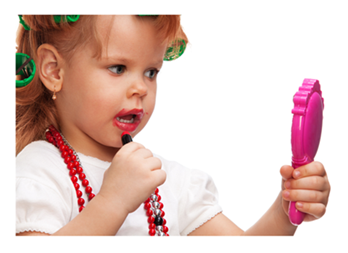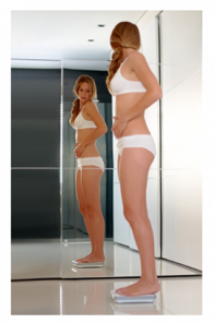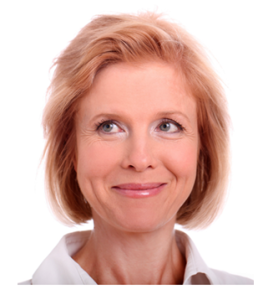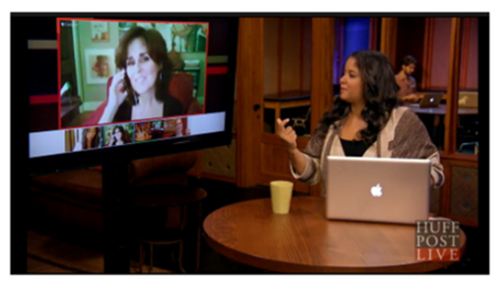Do you like the way you look?
Is your response an unqualified yes or no? Is it “that depends” or a meandering “I’m okay but…” followed by qualifying expressions of distaste for your nose, your hair, your body shape, the lines beginning to take form on your forehead?
Is there a little voice in your head that’s always telling you you’re not quite good enough? Does the nagging voice take its origins in your appearance?
Does it sound like “I hate my body, I hate my thighs, I hate my neck?” Are you buying into body hatred? Is it impacting your life choices, though you may not realize it?
Appearance Matters. Let’s Face It.
Yesterday afternoon I received an unexpected request – to join a Huff Post Live discussion on women, appearance and body image. After a conversation with one of the producers, I went about finding the best location in my home (where I work) for purposes of lighting and so on.
Then I glanced in the mirror. I saw the fatigue. I also saw the irony in putting on makeup for a discussion on excessive emphasis on appearance, but I am, after all, a product of my culture.
That irony aside, next I prepped. I checked out Jennifer Tress of the You’re Not Pretty Enough Movement, whose related work was the focus of the segment. Jennifer is putting her message out there to a surprising number of women who don’t feel “pretty enough” in a society that is all about looksism. Certainly, for its women.
This is what I generalize to a broader set of concerns I deem “not good enough,” which for many equates to not thin enough, not busty enough, not young enough… You get the drill.
In my prep, I also checked out relationship columnist Amy Chan. Pay close attention to her remarks in the segment.
Beauty, Bias, Behaviors. Big Topic!
With my references nearby, including my own column, “Think Looks Don’t Pay?” that addresses salary data based on appearance, not to mention a 2011 Glamour survey that cites 97% of young women as having at least one “I hate my body” moment a day, I sat myself down and joined in.
Naturally, we don’t know exactly how these conversations will flow and this was my first time on Huff Post Live. (Incidentally, everyone was professional and pleasant.) Here are some of the points mentioned only briefly or not mentioned due to time, but they’re important. Among them are several generalizations, but let me know if you find them untrue.
- We value women for appearance first and ideas or competence secondarily. We judge and criticize women based on appearance (looksism), undermining confidence from a very early age.
- We value men for what they know and achieve, and good looks are a “bonus.” We’re reinforcing this from the time we raise our boys as well.
- A slightly overweight kid, my own weight issues worsened in adolescence and adulthood. Body hatred was reinforced as the daughter of an obese mother who withstood jabs from family, friends, and strangers – all her life. I was on the receiving end of a milder version of the same.
- Boys are subject to body image distortion and worries as well. Both my sons went through a period during which they were afraid they were fat, and fat = bad in this culture.
- Body image issues clearly tamper with self-esteem. We may try to prove our worth sexually out of a feeling of “not being enough” in the appearance department. Is this really why we want girls or boys sexually active at 13 or 14 – so they feel “good enough?”
Do You Feel “Good Enough?”
Now let me ask again. Do you like the way you look? Are you overly critical of your appearance? How many times does the thought “I hate my thighs” or “I hate my nose” cross your mind?
Are you talking to your daughters and praising their looks – prettiness, thinness, dress, mannerisms – more than you’re praising their accomplishments, their kindness, their curiosity, their intelligence or their ability to make friends?
 What about your sons? Are you praising them more for their actions, their words, while approving of their rough-and-tumble forays into the world?
What about your sons? Are you praising them more for their actions, their words, while approving of their rough-and-tumble forays into the world?
Don’t think that boys aren’t prone to the same imbalance of expectations, or rather, a variant of imbalance. Don’t we teach them not to cry or show certain emotions? What about boys who aren’t athletic or seemingly tough enough?
Which behaviors and attitudes are we reinforcing that become their critical inner voices, their foundation for insufficient self-esteem?
If we’re praising our daughters for their looks and our sons for their achievements and ideas, aren’t our future men absorbing these messages that a woman’s value is in how she appears? And if we’re scrutinizing ourselves head to toe, aren’t these behaviors absorbed as “normal” by our children, in contrast to fathers who are not doing the same?
Shouldn’t we consider our words and actions, how they differ as we’re talking to and about genders, how we set expectations without realizing, which of course reflect cultural values?
The Beauty of Beauty
Naturally, media comes into play and I’m not going to get into that here. It’s a huge conversation, and we’ll table it for another day.
Suffice it to say – I’m a lover of beauty of all sorts – words, art, music; a child’s face, nature. I am as susceptible to Ryan Gosling’s six-pack abs and George Clooney’s bedroom eyes as the next red-blooded heterosexual woman. And like most women I know, I care about my looks, and criticize myself too easily, and I know – too harshly.
I recognize the warring voices over body image that grew out of my childhood and adolescence, some of which were reinforced during my marriage. I know my own voice to be the most critical.
 And I did put on the makeup and fix the hair before settling in front of the camera, now didn’t I…
And I did put on the makeup and fix the hair before settling in front of the camera, now didn’t I…
But caring is different from obsessing. And there’s no question that obsessing over appearance affects:
- our health (eating disorders, for example);
- our relationships (poor choices as compensation for low self-esteem; strain on relationships when we no longer fulfill the “beauty ideal”);
- our parenting (the skewed value and esteem messages we are sending to both boys and girls);
- our income (just check the data in the article on looks and pay)
- our happiness (negative self-talk is a terrible place to live).
The Beauty Balance
It’s natural to care about the impressions we make. It’s human to want to be seen as pleasant looking. But this is only one piece – one small, elusive, deceptive, changeable piece of who we are.
Nor am I saying we shouldn’t tell a child they look wonderful. We all want to look good, don’t we? There’s nothing wrong in that! It’s the emphasis that is problematic – on a certain standard of beauty / body shape / height / “look” that becomes the fundamental source of value for us as individuals.
Do we really want our friends, our sisters, our daughters and our mothers choosing so-called beauty over health?
It’s the insults, the digs, the backhanded compliments – hurled or slipped in with cagey cattiness: “She’s gained weight” or “she’s not very cute, why would he want her?” or “he’s too short to date” or “she’s not so bad… for her age.” These are daggers that do damage – and also lead us to miss out on wonderful friendships and relationships as we judge superficially rather than taking our time to know the whole package.
Go To Your Mirror. Now. Please.
Go to your mirror. Look, but do so kindly. Look, as you would look at a friend.
Did you hear that? As you would – a friend.
See your humanness. Experience the features that the world sees. Appreciate your smile that will put others at ease, your eyes that grant you every color in the spectrum, your nose that revels in the sweet scent of an infant sleeping or the aroma of morning coffee in your kitchen.
Can you feel the air on your skin? Will you put your index finger to your lips? Isn’t touch miraculous? Isn’t the body a source of pleasure?
Look at your best features and your “worst” – and toss them into the pot of who you are. Who you are is so much grander than the bump on your nose or the bony hips you’ve always hated or your ass that’s too big. You are so much more. We are so much more.
Think about it.
You May Also Enjoy


Thanks for some great content. I listened to the Jennifer Tress interview this morning and her ex husband clearly is vision challenged.
All the contributors made excellent input – you included.
I have a cute story about my Mum. She is a very beautiful woman who back in the day was a competitive ballroom dancer, sporting a 24 inch waist. On holiday in Spain recently she had a bit of a crisis about her appearance, brought on after some major surgery. A quick trip to our local beach traders, kitted her out in some “little numbers” which were the height of fashion in our region at the time, but successfully covered up the area of concern. She is 89.
Is this in the female DNA to worry about how we look? Advancing years has nothing to do with basic genetics and fertile and being reproductive.
Or do both men and women fall into that trap? I suspect that this is the case – but men don’t talk about it. I think this development is also media and advertising driven.
Do I like how I look? Of course not!
I love your story and your observations, Dorothy. I’m reminded of my grandmothers who still dressed ‘properly’ and cared about their appearance into their 80s.
I laughed at your last remark… Is the only woman who would say yes the one and only fictional Samantha from Sex and the City?
By the way, do check out Jennifer around the web, and find some of her appearances. She’s very entertaining. Way to go after your ex puts you down!
I especially loved the last paragraphs of this post. Our delicious, sensual, sensuous, miraculous, aging, thriving, bendable, pleasurable, aching, moving, eating, savoring, touching, unique bodies! We appreciate what we learn to appreciate about them and what they do not only for ourselves, but for others. So thought provoking.
A few years do assist in appreciating what we have, Barbara. Love your list of terms…
Do I like how I look? My instinctive answer was yes, BUT… as all the tapes in my head began playing about my weight, my squinty eyes, my big butt. Have been doing some work – on my head, as much as my body, though I haven’t yet gotten rid of that big BUT.
The ‘big BUT.’ Love it, Beverly!
I really love this, D. Your question was an easy one to answer. The answer has always been “No.” The dissatisfaction started when I was a little Asian girl wishing I was white, blonde and tall. Talk about setting up impossible standards! Body image is especially hard when you don’t look remotely like the vast majority of faces and bodies portrayed in the media. I remember appreciating my mother telling me, “In Hong Kong you are not short. You are totally normal. Even Ms. Hong Kong is your size.” Now, as an adult, I no longer long to be of a different race, but I still notice the faults only, and often the parts that I can’t change (without surgery and other drastic measures).
I also really appreciate that you talk about boys, because so much of the attention on creating positive body image is pointed toward girls. For good reason, of course, but neither gender is immune to this kind of pressure. My parents were both unhappy about their appearance, but my dad was much more affected. He had low self esteem and being skinny only exacerbated it. My quiet, artistic and literature-loving brother grew up with pressure to be bigger, taller, athletic, to be a “real” man. That, too, is an impossible ideal, when being a certain size is tied in also to being a certain type. And, yes, culture and race exacerbated all of this too…we grew up in the era of Long Duck Dong and other ridiculous portrayals of Asian men.
I also appreciate your bringing up the fact that it is we women who are harshest on one another. The majority of comments about my appearance and the vast majority of mean or back-handed “compliments” have come from female friends. (e.g., “Aw, you’re so cuuuuute” in commenting on my wedding photos.) I know that when they come like that, they’re simply symptoms of physical insecurities, something sad all around.
“Yes, although” is a natural and appropriate response, and it might even be considered vanity or naiveté to answer bluntly “yes.” Creative dissatisfaction is a virtue to which I aspire.
However, if required to choose between two inappropriate alternatives, I would go for “yes,” even though I am far from handsome. That isn’t the point…it’s me, and I do my best to take decent care of myself (although Fran tells me some of my favorite comfortable clothes should not be worn in public, and I try to be willing to satisfy her “whims” 🙂 in this regard). Aging…am I satisfied with it? That simply is not a yes or no question, and so I would not answer it either way. It’s going to happen, so deal with it. Would you prefer to be dead instead…always an option, but I’d prefer to deal, at least at this point.
Kudos on the HuffPost Live segment!
Love my body? Sure. If you take away the shelf on my ass, the batwing arms, the rounding middle (I’ve never carried weight in my waist!), my thunder thighs, and those pudgy little piggies…
Let’s see, that leaves my hair, eyes, and calves… Gotta start somewhere, yes? 😉
And if you were fully aware that we all find fault with our thighs, our pudgy this, our gawky that… or most of us… doesn’t that “normalize” it, Annah Elizabeth? Doesn’t that take the sting away – at least some?
I’d say I’m pretty happy with the way I look. But it took years, no decades, to get to this place.
Some days I do, some days I don’t. It depends on a lot of factors;– I’m very mercurial. Today I think I look pretty hot LOL. Time and years have made me realize I’m not supposed to look like I’m 16 anymore. sigh.
Let’s hear it for looking hot and owning it, Enchanted Seashells! (Fantastic. And oh, what a glorious word… “mercurial.”)
When I was 26, I was in a car crash that left me with severe oral-facial injuries, including multiple facial fractures, deep oral and facial lacerations, compressed tissue, lost and broken teeth and an almost-severed tongue. Before the crash, I had been attractive enough to have succeeded in a highly-competitive selection process for a job that, among other criteria, assessed candidate attractiveness. After the crash, my face looked grotesque. That improved over time, but even after five years of periodic reconstructive surgeries, I had noticeable scars all over my chin and an inability to smile straight. One of the many things this accident forced me to do was not rely upon my appearance, and other people’s reactions to it, for my self-esteem and attractiveness to others. I had to undo a lifetime of conditioning as a female in our culture and learn to care about how I looked without my appearance playing a determinative, or even major, role in how I felt about myself or in my confidence in interacting with others. Frankly, I have long been grateful for being released from that trap.
Wolf,
The words in your post are important. I live in a city where beauty is seen as a defining trait. Although many of the women are surgically enhanced, they are considered pretty, I wonder what price they have paid to fit into a mold that society continues to perpetuate? Sometimes when I see these same women, I have this flashing flicker of self-doubt. I am not blonde or fair skinned, nor do I still inhabit the body of a teenager. But I am the same woman who isn’t checking how I look in the mirror all the time or wondering about what others think when they see me. I find that liberating and peaceful. I think we all have days of not feeling or looking our best self, but if the good days outweigh the bad, I believe that is progress.
That does sound liberating indeed, Rudri.